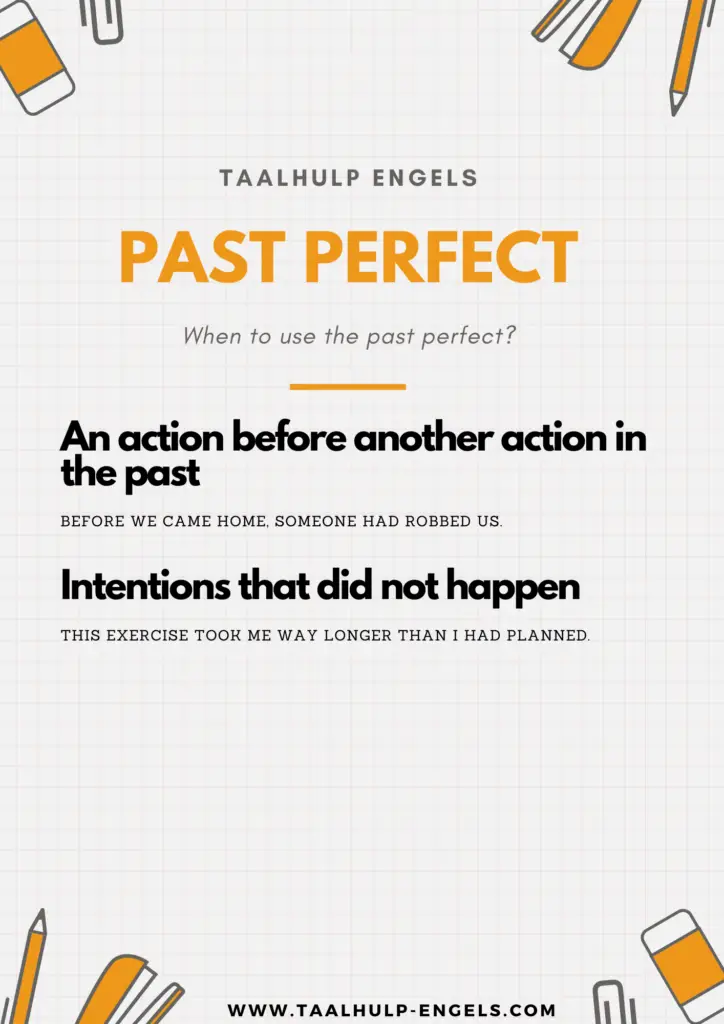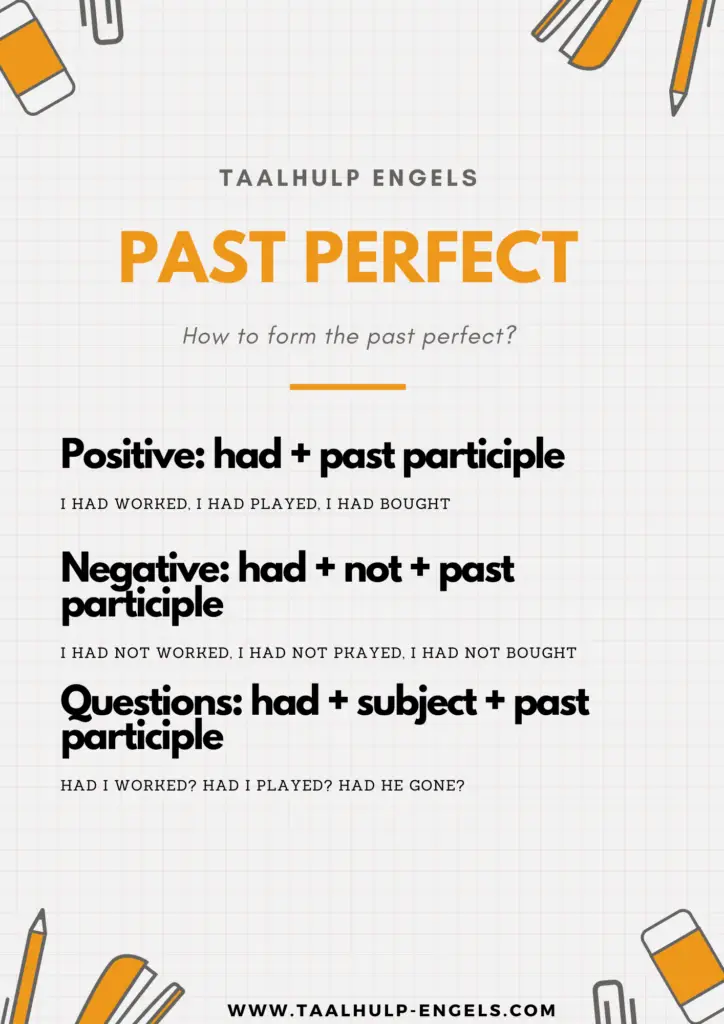The past perfect (simple) is one of the tenses in English to talk about events or actions in the past. On this page, you have a complete overview of when to use this tense, how to form it and you also have some examples and exercises.
Past perfect tense
The past perfect is a tense in English that you use to talk about actions or events in the past that happened before another action or event in the past. This shows there is a clear link between the actions or events and that one happened before the other. Below, you have more information about specific situations in which you can use this tense:
An action or event that took place before another action or event in the past
- Before we got home, someone had robbed us.
Intentions that did not happen
- This exercise took me way longer than I had planned.


How to form the past perfect
Past perfect positive
This tense is formed by using the past simple of ‘to have’ (had), followed by the past participle of the main verb.
When forming a past participle, you have two options: regular verbs and irregular verbs. The past participle of regular verbs is formed by adding <ed> to the infinitive. The irregular verbs are more complicated because they are irregular. This means you have to study them. A list of the most common irregular verbs is available here.
If you want to form a past perfect, you always need two parts:
had + past participle
| I had worked |
| You had worked |
| He/she/it had worked |
| We had worked |
| You had worked |
| They had worked |

Past perfect negative
To make the negative form, you use ‘not’ and put it right after ‘had’.
| I had not worked |
| You had not worked |
| He/she/it had not worked |
| We had not worked |
| You had not worked |
| They had not worked |
Past perfect questions
If you want to form questions in the past perfect, you need to change the word order. First, you put had, followed by the subject and the past participle of the main verb.
had + subject + past participle
| Had I worked? |
| Had you worked? |
| Had he/she/it worked? |
| Had we worked? |
| Had you worked? |
| Had they worked? |
Time indicators
If you see this word in a sentence, it’s usually an indication that you are dealing with a past perfect.
- Before, after
Examples
| Positive | Negative | Questions |
|---|---|---|
| I had worked He had sung | I hadn’t worked He hadn’t sung | Had I worked? Had he sung? |


Past perfect exercises
- Exercise 1
- Exercise 2
- Negative Exercise 1
- Negative Exercise 2
- Questions Exercise 1
- Questions Exercise 2
- Mixed Exercise 1
- Mixed Exercise 2
- Mixed Exercise 3
- Mixed Exercise 4
- Mixed Exercise 5


